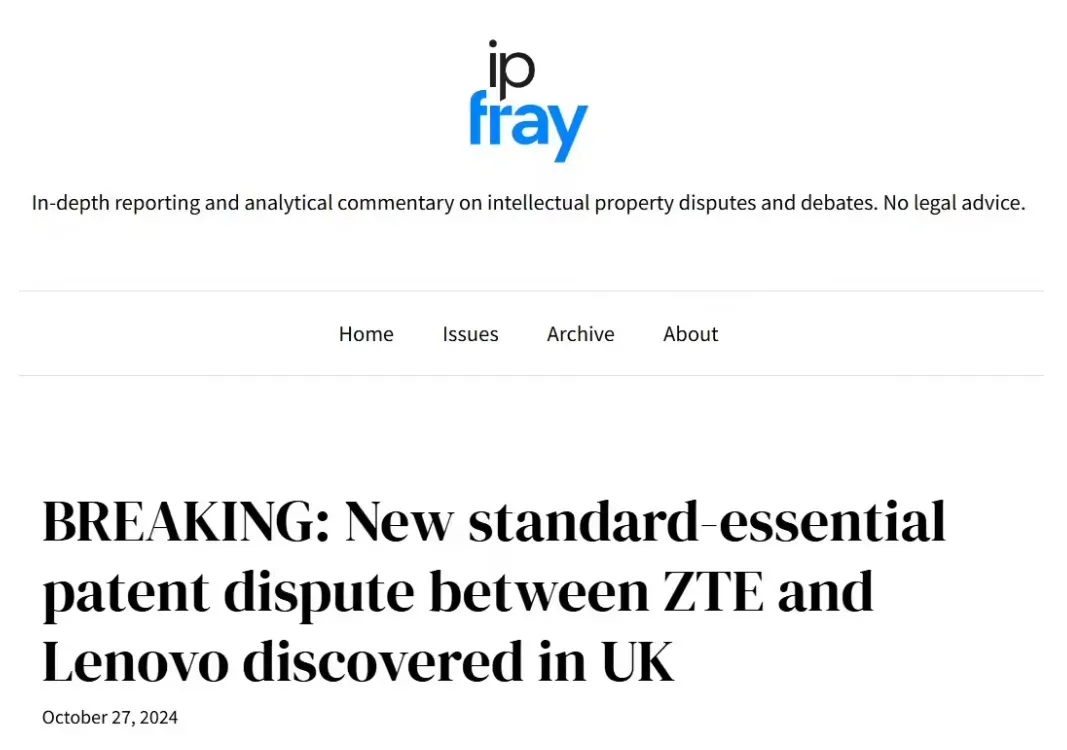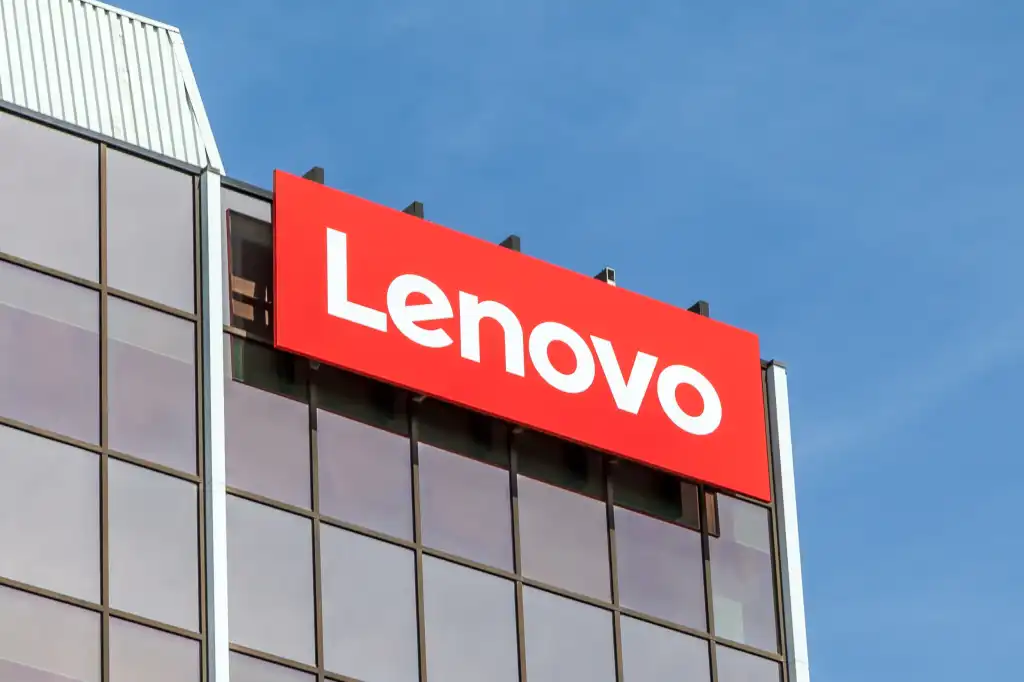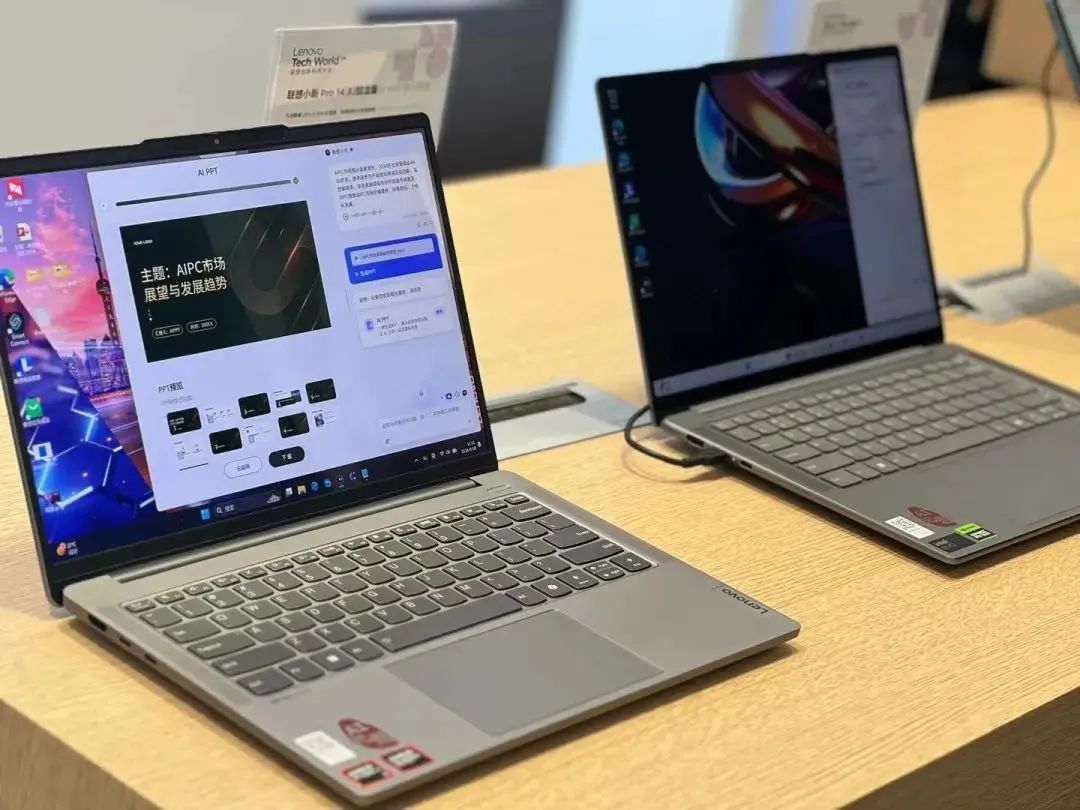Lenovo's overseas lawsuit against ZTE and the uncertain future of AI PCs
![]() 10/29 2024
10/29 2024
![]() 686
686


"Lenovo hopes to achieve higher growth through AI, but at this stage, the promotional significance of AI PCs may outweigh their practical significance."
@TechNewKnow @original
Lenovo sues ZTE overseas over patent infringement disputes!
According to IT Home, citing foreign intellectual property media IP Fray, Lenovo filed a lawsuit against ZTE for patent infringement in the High Court of England and Wales on October 21, 2024, with case number HP-2024-000038. Details of the claim are currently unclear.

It is understood that ZTE and third-party entities that have spun off patents from ZTE have successively engaged in litigation disputes with mobile phone manufacturers such as Samsung, OPPO, vivo, Xiaomi, and Tianlong in various locations, including China, Germany, and the United States.
According to "Fast Tech," Lenovo's move may be a response to ZTE's earlier patent licensing offers or lawsuits. ZTE's patent technology is valued at over 45 billion Chinese yuan and is expected to generate revenue of 4.5 to 6 billion yuan for the company between 2021 and 2025. As the eighth-largest mobile phone manufacturer globally with a market share of approximately 5%, especially with a strong presence in North America, Lenovo chose to file a lawsuit in the High Court of England and Wales in response to patent holders' demands for licensing fees, aiming to obtain a favorable global licensing rate ruling.
It is currently unclear whether ZTE has filed a lawsuit against Lenovo in court, but with the disclosure of the UK lawsuit, disputes and more litigation information between the two parties will soon be made public.
01.
Revenue Recovery
In August this year, Lenovo Group announced its financial results for the first quarter of fiscal year 2024-2025 ended June 30, 2024, reporting revenue of up to $15.447 billion, representing a year-on-year increase of 20%. Net profit attributable to shareholders reached $243 million, up 38% year-on-year. Lenovo's declining performance has been effectively contained, showing a positive development trend. Looking back at fiscal year 2023-2024, Lenovo's total annual revenue was $56.864 billion, down 8% year-on-year; net profit attributable to shareholders was $1.011 billion, down 37% year-on-year.

The last time Lenovo Group achieved double-digit growth in both revenue and net profit attributable to shareholders was back in fiscal year 2021-2022. Thanks to a new round of commercial replacement cycles and the continued warming of the global PC market fueled by AI PCs, the momentum for the market's recovery is still strengthening. During this fiscal quarter, Lenovo Group's core personal computer business accounted for nearly 23% of the global market share. According to the latest statistics from Canalys, Lenovo's AI PC shipments increased by a staggering 228% month-on-month.
It is worth noting that the proportion of Lenovo's non-PC businesses has approached 47%. Last year, Lenovo Group Chairman and CEO Yang Yuanqing stated that he hoped that within two years, non-PC business revenue would account for more than half of the total. At that time, non-PC business was still 8.6% shy of this goal, but now it has reached 47% in the new fiscal quarter. If non-PC business revenue can exceed half next year, it will mark a successful transformation for Lenovo Group.
The Infrastructure Solutions Group (ISG), one of Lenovo Group's three main businesses, achieved revenue of $22.9 billion in this fiscal quarter, setting a new record high and growing by 65% year-on-year. IDC predicts in its latest report that the global traditional infrastructure market will grow at a compound annual growth rate (CAGR) of 10% from 2024 to 2027, while the global AI infrastructure market is expected to grow at a CAGR of 15% over the same period.
However, while the profitability of Lenovo's ISG business group has improved, with losses decreasing by $23 million year-on-year in this fiscal quarter, it still incurred losses of up to $37.274 million. At the 2024/2025 fiscal year kick-off meeting, CEO Yang Yuanqing announced that the performance target for the ISG business group is to achieve profitability and resume growth.
It is worth mentioning that on October 24, Lenovo Group appointed a former Dell executive as the new leader of the ISG business group. This individual has previously led multi-billion dollar infrastructure systems and storage equipment businesses at various global technology companies. This shows that Lenovo Group has high expectations and values this new leader.
02.
Betting on AI PCs
With the recovery of the PC market and the computing infrastructure boom brought about by AI, the global computer and server industries are entering a new stage of rapid growth. Market research firm Counterpoint predicts that by 2027, AI PCs will account for three-quarters of the entire PC market, with nearly 500 million AI PCs expected to be sold between 2023 and 2027. Moreover, global PC shipments reached 65.3 million units in the third quarter of 2024, with Lenovo leading the pack with 16.5 million shipments, a year-on-year increase of 3%.
Earlier, Yang Yuanqing revealed that Lenovo aims to achieve an AI PC shipment share of 10% in the Chinese market by the end of this year, 25% globally next year, and eventually more than half of the global market by 2027. Currently, Lenovo has a promising future in terms of development.

However, in the first fiscal quarter of fiscal year 2024-2025, Lenovo Group's profitability was not entirely satisfactory, with a gross margin of 16.6%, lower than the 17.5% in the same period last year, and a net profit margin of only 1.6%, up 0.2 percentage points year-on-year.
At this stage, many companies, including Lenovo, are actively increasing their investment in AI PCs. While Lenovo hopes to achieve higher growth through AI, Dell initiated a new round of large-scale layoffs in August, potentially affecting over 12,000 employees, following previous layoffs of about 25,000 employees over the past 15 months. In the third quarter of this year, Dell's shipments remained third, but decreased by 1% year-on-year.
It remains uncertain how long the recovery trend in the PC market will last, but based on the current situation, the promotional significance of AI PCs may still outweigh their practical significance. The challenge for Lenovo in the future lies in how to stand out in the homogenized AI competition.








